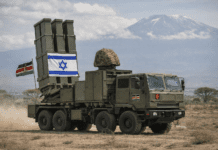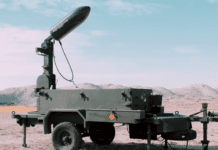This post is also available in:
 עברית (Hebrew)
עברית (Hebrew)
The United States Special Operations Command (USSOCOM) has entered into a five-year research and development partnership with Seerist, aimed at advancing its use of artificial intelligence (AI) for strategic intelligence and decision-making. The agreement focuses on leveraging AI and machine learning to strengthen the Department of Defense’s capabilities in global event detection, risk assessment, and operational decision-making, according to the press release.
At the core of this initiative is an analytics platform that uses AI to “improve information gathering, situational awareness, and predictive modeling capabilities”. The goal is to enable U.S. forces to identify instability, threats, or changes in operational environments earlier and with greater accuracy. By combining algorithmic insight with human expertise, the system is designed to support faster, better-informed decision-making, especially in high-risk or rapidly evolving scenarios.
This partnership reflects a broader U.S. defense strategy focused on embedding AI into command and control systems. It builds on earlier government initiatives, such as DARPA’s $2 billion AI Next campaign launched in 2018, which aimed to push AI from a support tool to a decision-making collaborator.
Recent applications of AI in defense settings illustrate this ongoing shift. For instance, the U.S. Air Force recently tested an AI pilot in a tactical aircraft for 17 hours of simulated combat, while another program involves integrating AI into counter-drone platforms in Europe.
What sets this current project apart is its focus on real-time risk assessment through intelligence, which is a crucial element in modern security operations. As threats become increasingly diffuse—spanning cyber, political, and physical domains—systems capable of synthesizing diverse data sources into actionable insight are becoming essential to national security infrastructures.
The collaboration is expected to contribute to a broader trend of AI-enhanced decision support tools becoming standard across defense and homeland security operations.

























